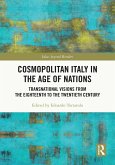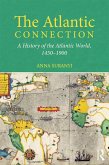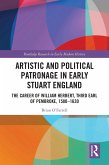Dieser Download kann aus rechtlichen Gründen nur mit Rechnungsadresse in A, B, BG, CY, CZ, D, DK, EW, E, FIN, F, GR, HR, H, IRL, I, LT, L, LR, M, NL, PL, P, R, S, SLO, SK ausgeliefert werden.
"Original and scholarly essays on a fascinating subject ... a remarkable book." - Lord Dacre of Glanton (Hugh Trevor-Roper)
"...I fell for its its irresistible enthusiasm. Chaney has a profound scholarly knowledge of Anglo-Italian historical relationships, but he is also a writer full of surprise and discursive curiosity ... a most beguiling delight." - Jan Morris' "Book of the Year" in the Independent
"Edward Chaney's fascinating book illuminates the magnetic attractions of Italy ... a work of meticulous scholarship about the origin and evolution of the Grand Tour." - John Mortimer, The Sunday Times
"[written with] verve and precision and tremendous authority ... this book, richly illustrated and handsomely produced, will become an indespensable work for cultural historians, Italophiles and all latter-day Grand Tourists." - Noel Malcolm, Sunday Telegraph
"this collection of 14 brilliant essays provides us with much new material and many new insights." - David Watkin, Country Life
"Chaney is a scholarly and learned writer and he sheds light on a wide range of topics ... A wealth of humane learning ... characterises this attractive volume." - Sir Keith Thomas, Apollo: International Magazine of the Arts
"This is a bran-tub of Anglo-Italian delights, sustained by seriousness and enthusiasm in equal measure." - Jonathan Keates, Literary Review
"To those who know, even in part, their sources in the continuing unravelling of the Grand Tour, this book is an indispensable, a quite golden, addition...Professor Chaney holds us all in his debt in this collection of occasional essays touching on subjects and conections that, quite simply, have not occurred to others less erudite than himself ... the style is of a plein air ease such that one might be listening to a soliloquy in the gardens of Villa Lante ... taken as a whole it could not be bettered." - Patrick Reyntiens, The Tablet









